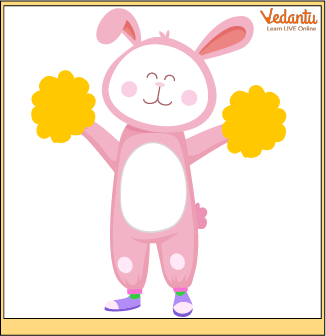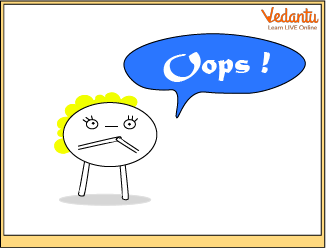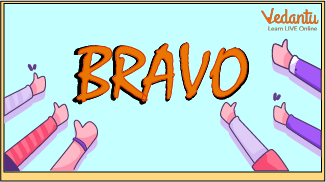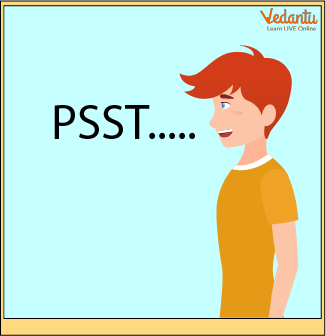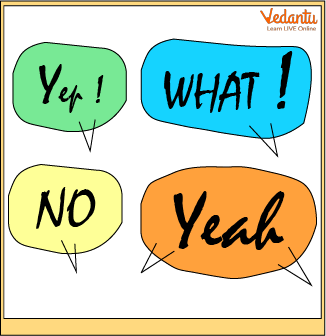




How Do Interjections Improve Your English Communication Skills?
Interjections are words or phrases used to express strong emotions or reactions, like surprise, excitement, or frustration. These short exclamations, such as "Wow!" or "Oops!", addenergy and emotion to our sentences, making our communication more lively and engaging. Understanding interjections helps students use them effectively in both spoken and written language, adding depth and feeling to their expressions.
What are Interjections?
Interjections are one of the eight different parts of speech in English grammar. They are short, passionate words used to express strong emotion. Use interjections to quickly communicate your emotions. Since they are more widely used in spoken English, they should be avoided in official writing.
They are one-of-a-kind and have a few unique characteristics: interjections have no grammatical function in sentence structure. Normally, they can't be updated or altered in any manner. They don't have to be tied to anything else in the statement. Examples of interjections are yikes, umm, ughh, uhh, and so on.
Interjections- Definition
An interjection, as defined by the Oxford Learner’s Dictionary, is “a short sound, word, or phrase spoken suddenly to express an emotion.” The Cambridge Dictionary describes it as “a word that shows a brief, sudden expression of emotion.” Merriam-Webster defines an interjection as “a word or phrase used in exclamation,” while the Macmillan Dictionary explains it as “a word or phrase used to express strong emotions like surprise or anger.” According to the Collins Dictionary, an interjection is “a word or expression used to convey a strong feeling, such as surprise, pain, or horror.”
Types of Interjections with Examples
The different types of interjection are helpful to identify the parts of speech that help decide whether an interjection is necessary or not. These types are based on one's emotions or feelings.
Rules for Interjections
1. An interjection can be used before or after a statement that explains what is happening.
Example:
Wow! That is an incredible scene.

Wow
What? That's something you never told me!
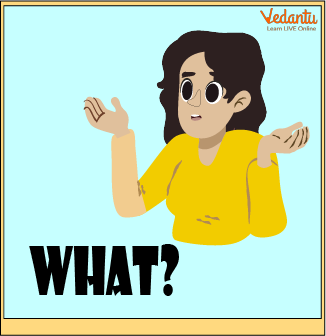
What
2. Some interjections are limited to expressing yes or no.
Example:
Yes! I'm sure I'll pull it off.
No way are we going.

Yes and No
3. Some interjections are used to break up a conversation or a thought or to hold someone's attention for a brief period of time.
Example:
On the back of your shirt, um there's a stain.
The date went meh.
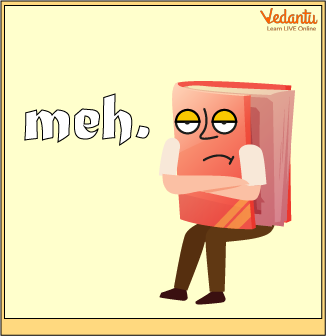
Meh
4. In casual and informal writing, interjections are acceptable. It's also alright to use them in conversation.
Interjection Vs Exclamations
Interjections Examples in sentences
1. "Wow!" she exclaimed, "This place is beautiful!"
2. "Oops," I dropped the glass.
3. "Hurray!" We won the match!
4. "Yikes," that was a close call.
5. "Oh no," I forgot my wallet at home.
6. "Aha," I knew you were hiding something.
7. "Hey," wait for me!
8. "Ouch!" That really hurt.
9. "Uh-oh," I think we have a problem.
10. "Phew," I'm glad that's over.
List of Interjections Words in our Daily Communication
How to use Interjections with examples
When using interjections, it's important to follow some key punctuation rules. Here are the things you should remember:
If a short interjection starts a sentence, it should be followed by a comma.
If an interjection stands alone as a sentence, it can end with a period, question mark, or exclamation point.
When an interjection is placed in the middle of a sentence, it should have a comma before and after it.
In conversation, interjections can sometimes stand alone.
Avoid using too many interjections in formal writing or speech.
1. Interjection at the beginning of a sentence:
"Wow, that was an amazing performance!"
"Oh, I didn’t see that coming."
2. Interjection as a complete sentence:
"Oops! I spilled my drink."
"Aha! I found the answer."
"Huh? What did you say?"
3. Interjection in the middle of a sentence:
"The movie, well, was not as good as I expected."
"She, oh no, forgot to bring the keys."
4. Interjection standing alone in conversation:
"Hey!"
"Hmm."
"Yikes!"
5. Avoiding interjections in formal writing:
Formal: "The presentation was highly informative."
Informal: "Wow, the presentation was super informative!"
Exercise for Interjection Examples Sentences
1. How many among the following are types of interjection?
A. Interjection of Affection
B. Interjection of Sound
C. Interjection of Sorrow
D. All of the above
E. Only C
Ans: C. Interjection of Sorrow is the correct answer.
2. How many major types of interjection are there?
A. 6
B. 7
C. 5
D. 8
Ans: The answer is 6. Option A.
3. Fill in the correct injection
A. ____! Tina, you look great today.
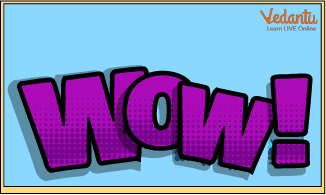
Wow
Ans: Wow
B. _____ . That hurt.
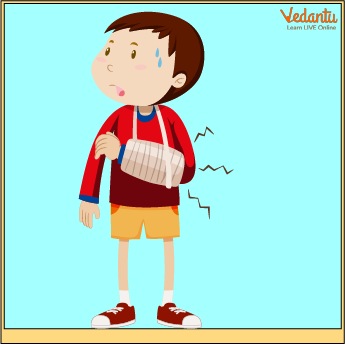
Ouch
Ans: Ouch
C. ____ ! I forgot to bring my notes.
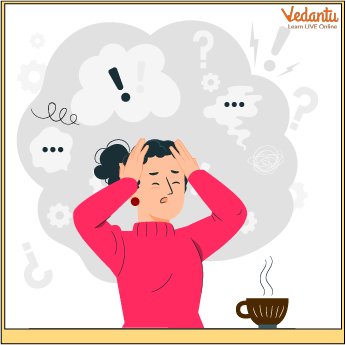
Oh
Ans: Oh
D. ____! His mother died.
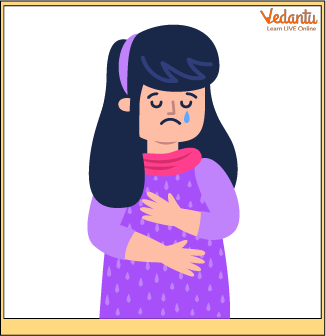
Alas
Ans: Alas
E. ____! There is a Harry Potter read along today at the library.
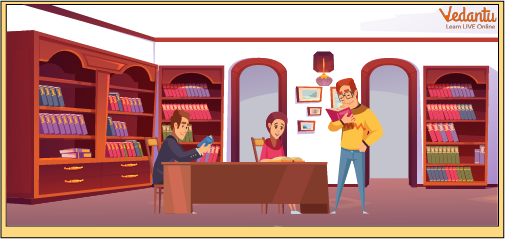
Yay
Ans: Yay
Test your Knowledge on Interjections
1. Identify the type of interjection.
A. Hello. Are you okay there? Here, Hello is what type of interjection?

Greeting
1. The Interjection of Joy
2. The interjection of Approval
3. The interjection of Greeting
4. The interjection of Sorrow
B. Ah! Today was a terrible day. Ah! Here is an …?
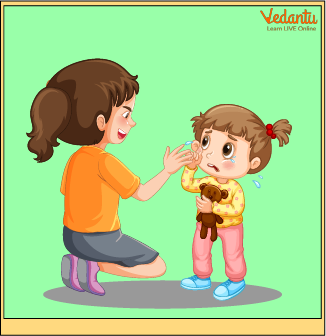
Whining
1. The interjection of Sorrow
2. The interjection of Approval
3. The interjection of Greeting
4. The Interjection of Joy
C. Write the correct interjection
1. _________ ! This dish is so delicious.
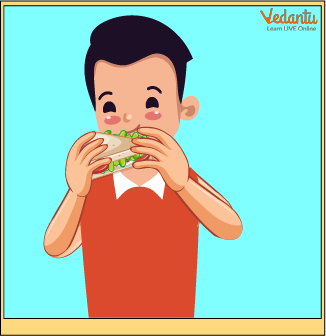
Eating
A. Splendid
B. Whoops
C. What
D. Yikes
2. ________! The teacher has arrived.

Teacher
A. Behold
B. Look
C. Phew
D. Oh Dear
3. _________ ! We won the game.
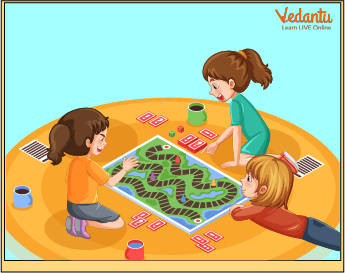
Games
A. Excellent
B. Ahem
C. Hush
D. Bravo
D. Fill in the blank with proper Interjection
1. ________! That sunset is absolutely stunning.
2. ________! I dropped my pen on the floor.
3. ________! That was a close call.
4. ________! We finally finished the project.
5. ________! I’ve found the missing piece of the puzzle.
6. ________! I forgot my homework at home.
7. ________! I'm glad that's over.
Here you Go—Check if your Answers Match the Ones Below!
1.
The Interjection of Greeting
The Interjection of Sorrow
C.
Splendid! The dish is so delicious.
Look! The teacher has arrived.
Bravo! We won the game
D.
Wow
Oops
Yikes
Hurray
Aha
Oh no
Phew
Takeaways from this Page
Interjections help students recognize how emotions and reactions can be expressed in just one or two words.
Students will learn the correct punctuation for interjections, such as when to use commas, exclamation marks, and periods.
They can identify different types of interjections, like those expressing joy, surprise, pain, or sorrow, and understand their appropriate usage.
Students will understand where interjections can be placed in a sentence, whether at the beginning, middle, or end, and how it affects the tone of the sentence.
They will learn about the appropriateness of using interjections in formal versus informal contexts, understanding when and where they should or should not be used.
FAQs on Interjections in English: Meaning, Types & Real-Life Examples
1. What is an interjection in English grammar?
An interjection is a word or a short phrase used to express a sudden feeling, emotion, or reaction. It is grammatically independent of the other words in a sentence. For example, in the sentence, "Wow! That's a beautiful painting," the word "Wow!" is an interjection expressing surprise or admiration.
2. What are the main types of interjections with examples?
Interjections are primarily categorised based on the emotion they convey. The main types include:
Interjections of Joy: Used to express happiness (e.g., Hurray!, Yay!).
Interjections of Greeting: Used to greet someone (e.g., Hello!, Hey!).
Interjections of Surprise: Used to show shock or astonishment (e.g., What!, Oh!).
Interjections of Sorrow: Used to indicate sadness or grief (e.g., Alas!, Oh no!).
Interjections of Approval: Used to show praise or agreement (e.g., Bravo!, Well done!).
Interjections of Disgust: Used to express a strong dislike (e.g., Yuck!, Ew!).
3. How do you use and punctuate interjections in a sentence?
An interjection is typically placed at the beginning of a sentence and is followed by a punctuation mark that reflects its emotional intensity. You should use an exclamation mark (!) for strong emotions (e.g., "Ouch! That really hurt.") and a comma (,) for milder emotions (e.g., "Well, I think we should go now.").
4. How can a student identify an interjection in a sentence?
To identify an interjection, look for a word or phrase that is not grammatically connected to the rest of the sentence. It is often set off by a comma or an exclamation mark. A simple test is to remove the word in question; if the sentence still makes complete grammatical sense, the removed word is likely an interjection. For example, in "Hey, are you listening?", removing "Hey" leaves a grammatically correct question.
5. What is the main purpose of using interjections in communication?
The main purpose of an interjection is to add a layer of emotion and personality to language. While they don't contribute to the grammatical meaning, they provide crucial context about the speaker's feelings—such as surprise, pain, joy, or disgust. This makes communication, especially informal writing and dialogue, more expressive, realistic, and engaging.
6. In what type of writing are interjections most appropriate, and when should they be avoided?
Interjections are most appropriate in informal communication, such as everyday conversation, personal messages, and creative writing (like stories and plays) to make dialogue sound natural. It is best to avoid using them in formal writing—including academic essays, research papers, and business reports—where they can make the tone seem too casual and unprofessional.
7. What is the difference between a mild interjection and a strong interjection?
The difference is based on the intensity of the emotion being expressed and the punctuation that follows. A strong interjection conveys a powerful feeling and is followed by an exclamation mark (e.g., "Yikes! That was close!"). A mild interjection shows a less intense feeling and is separated from the sentence by a comma (e.g., "Oh, I see your point.").
8. Can an interjection be a phrase, or is it always a single word?
Yes, an interjection can definitely be a phrase. While single-word interjections like Oops! and Wow! are very common, multi-word phrases that express a single burst of emotion also function as interjections. Well-known examples of phrasal interjections include "Oh my God!", "Well done!", and "Good grief!".

























